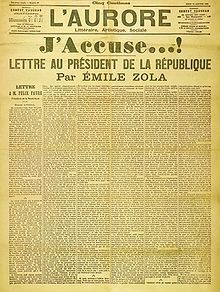This is your morning Open Thread. Pour your favorite beverage and review the past and comment on the future.
Find the past “On This Day in History” here.
January 17 is the 17th day of the year in the Gregorian calendar. There are 348 days remaining until the end of the year (349 in leap years).
On this day in 1961, President Dwight D. Eisenhower delivers his farewell address to the nation warning the American people to keep a careful eye on what he calls the “military-industrial complex” that has developed in the post-World War II years.
A fiscal conservative, Eisenhower had been concerned about the growing size and cost of the American defense establishment since he became president in 1953. In his last presidential address to the American people, he expressed those concerns in terms that frankly shocked some of his listeners.
Eisenhower began by describing the changing nature of the American defense establishment since World War II. No longer could the U.S. afford the “emergency improvisation” that characterized its preparations for war against Germany and Japan. Instead, the United States was “compelled to create a permanent armaments industry” and a huge military force. He admitted that the Cold War made clear the “imperative need for this development,” but he was gravely concerned about “the acquisition of unwarranted influence…by the military-industrial complex.” In particular, he asked the American people to guard against the “danger that public policy could itself become the captive of a scientific-technological elite.”
Military-industrial complex (MIC) is a concept commonly used to refer to policy relationships between governments, national armed forces, and the industrial sector that supports them. These relationships include political approval for research, development, production, use, and support for military training, weapons, equipment, and facilities within the national defense and security policy. It is a type of iron triangle.
The term is most often played in reference to the military of the United States, where it gained popularity after its use in the farewell address speech of President Dwight D. Eisenhower, though the term is applicable to any country with a similarly developed infrastructure.
It is sometimes used more broadly to include the entire network of contracts and flows of money and resources among individuals as well as institutions of the defense contractors, The Pentagon, and the Congress and executive branch. This sector is intrinsically prone to principal-agent problem, moral hazard, and rent seeking. Cases of political corruption have also surfaced with regularity.
A similar thesis was originally expressed by Daniel Guerin, in his 1936 book Fascism and Big Business, about the fascist government support to heavy industry. It can be defined as, “an informal and changing coalition of groups with vested psychological, moral, and material interests in the continuous development and maintenance of high levels of weaponry, in preservation of colonial markets and in military-strategic conceptions of internal affairs”.

 On this day in 1919, the
On this day in 1919, the 

 On this day in 1761, the
On this day in 1761, the  The Third Battle of Panipat saw an enormous number of casualties and deaths in a single day of battle. It was the last major battle between indigenous South Asian military powers, until the creation of
The Third Battle of Panipat saw an enormous number of casualties and deaths in a single day of battle. It was the last major battle between indigenous South Asian military powers, until the creation of 
 On this day in 1932,
On this day in 1932,  On January 11, 1908, U.S. President Theodore Roosevelt
On January 11, 1908, U.S. President Theodore Roosevelt 
 On this day in 1901,
On this day in 1901, 

Recent Comments